ABOUT US
The Motivation
Preserving Rangelands for Biodiversity, Livelihoods and Climate Resilience
Rangelands cover over half of the Earth’s land surface and play a crucial role in maintaining ecological balance. They support biodiversity, sustain millions of livelihoods, and provide vital services such as carbon sequestration and water regulation. However, these ecosystems are under significant threat from habitat destruction caused by land conversion and overexploitation. Sustainable livelihoods and ancient pastoral land management practices are breaking down due to poverty and unemployment, further contributing to the degradation of rangelands.
Properly managed rangelands have the potential to provide food security and alleviate poverty for millions of people. They offer various ecosystem services, including food and fibre production, carbon storage (accounting for approximately 30% of the world's soil carbon), recreation, open space, and water supply. Improved rangeland management could enhance carbon sequestration, potentially sequestering an additional 1300–2000 Mt CO2e by 2030.
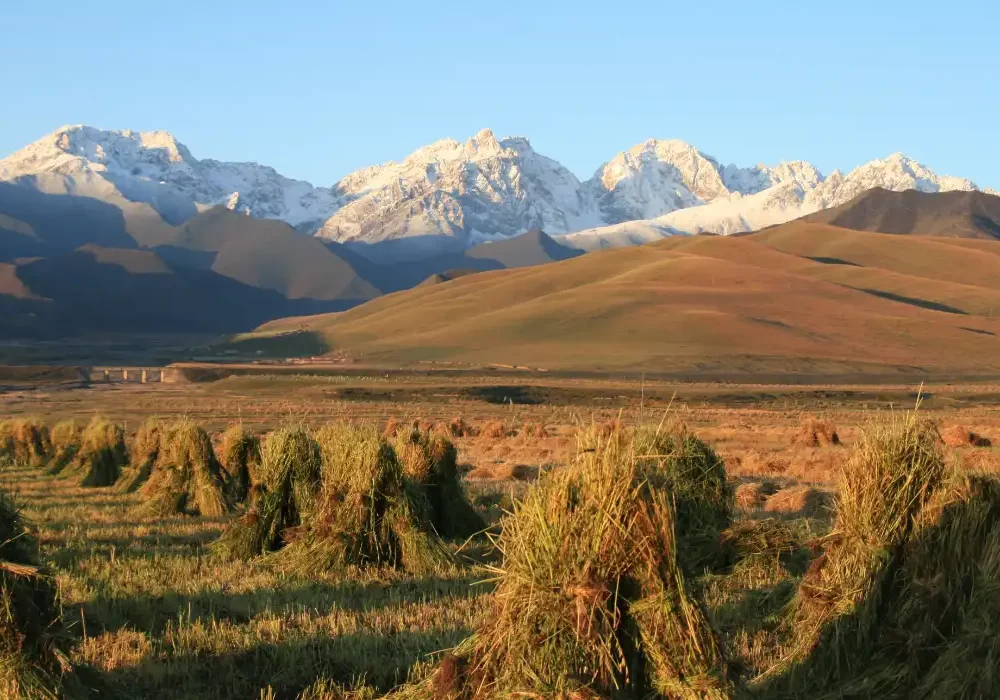
Safeguarding Against Land Degradation for a Sustainable Future
25–35% of rangelands globally are currently under some form of degradation. The conversion of rangelands to other uses has reduced the available area for livestock, leading to increased pressures on the remaining land. Inadequate government policies and the impacts of climate change, such as higher temperatures and more erratic rainfall patterns, have further exacerbated land degradation, resulting in bare soils, soil erosion, and compaction, along with losses in animal productivity, wildlife, and biodiversity.
To respond to these pressures, the Rangeland Stewardship Council (RSC) has been established to guide more consistent, responsible management of rangeland ecosystems. By setting shared principles and baseline practices, supporting monitoring and validation of outcomes, and strengthening pathways for investment, the RSC provides a structured approach for improving stewardship and reducing degradation.
Its voluntary sustainability system brings together scientific research, traditional knowledge, and private sector involvement to align actions across regions. Through this coordinated effort, the RSC helps improve land condition, support sustainable livelihoods, and maintain the resilience of rangeland landscapes.
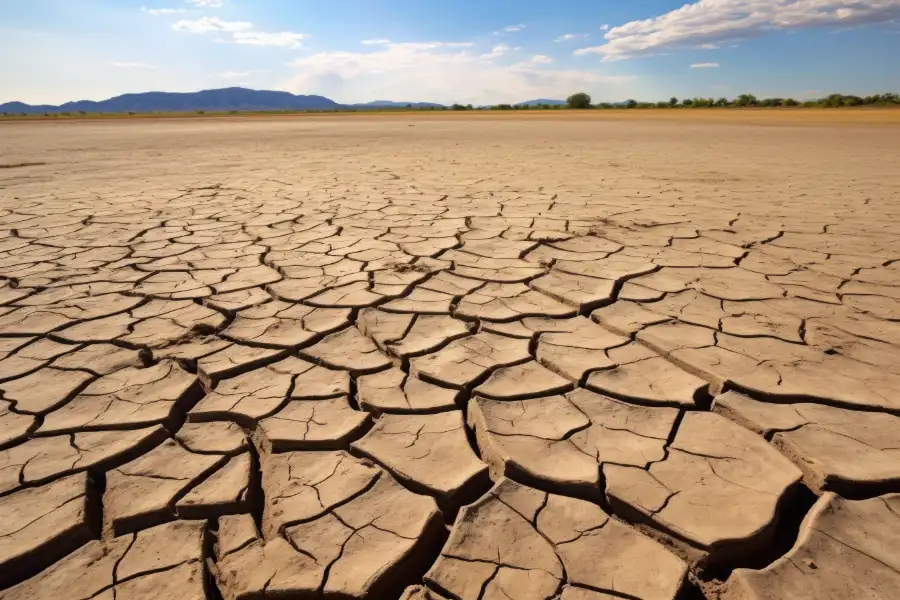
“More than half of the world’s land mass is rangeland – and yet these landscapes and the people who inhabit and manage them have been largely neglected. They are a main source of food and feed for humanity, and yet they are also the world economy’s dumping ground. It is time to shift perspective – from ‘a rangeland problem’ to ‘a sustainable rangeland solution’.”
UN International Year of Rangelands & Pastoralists (IYRP) Working Group
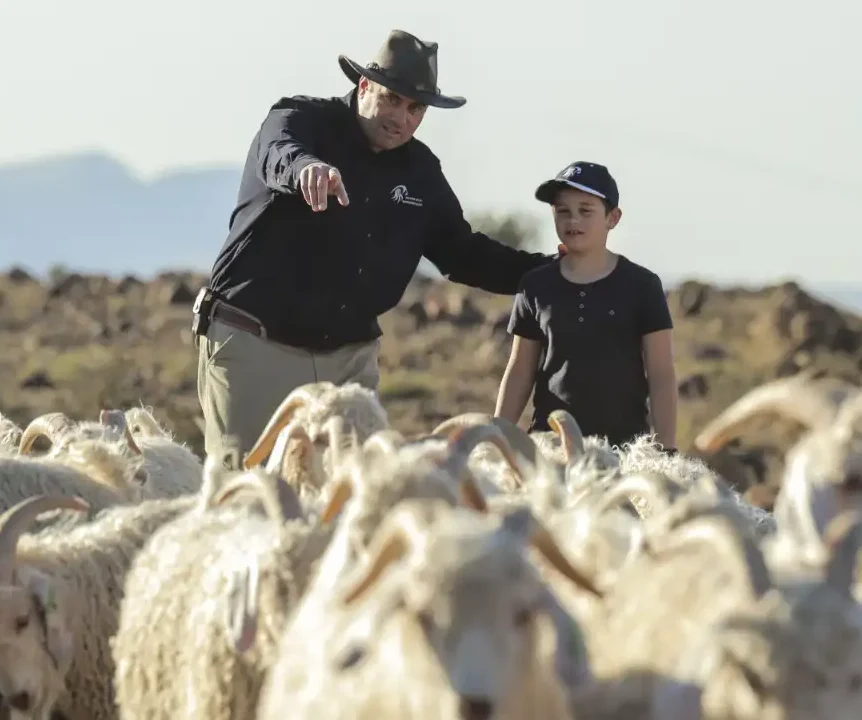
Our Mission
We bring people together to share knowledge,
drive investment, and accelerate action to protect
and restore rangelands.
Our Vision
A world where rangelands and their
communities are thriving, and responsible land
stewardship is valued by all.
Building a better future
Join us in making a difference by participating in our vibrant
community and helping foster positive change in global rangelands.
RSC Approach
Collaborative
The RSC embraces a collaborative approach by actively engaging with existing programs and groups in both the private and public sectors.
Regionally Specific
Recognising the diverse nature of rangelands, the RSC aims to provide guidance for regionally specific standards by coordinating with policies at local, national, and international levels.
One Health
In line with the World Health Organisation's 'One Health' approach, the RSC takes a holistic perspective, considering the interconnectedness of human health, animal health and the environment.
Bottom-up Strategy
The RSC adopts a bottom-up strategy to encourages collaboration between organisations using rangeland products and the communities that produce these materials, thereby promoting conservation and sustainability from the grassroots level.
Transparent
Transparency is fundamental to the RSC to ensure accountability for all stakeholders, whether public or private. The RSC adheres to the ISEAL Codes of Good Practice, focusing on principles like engagement, impartiality, and transparency.
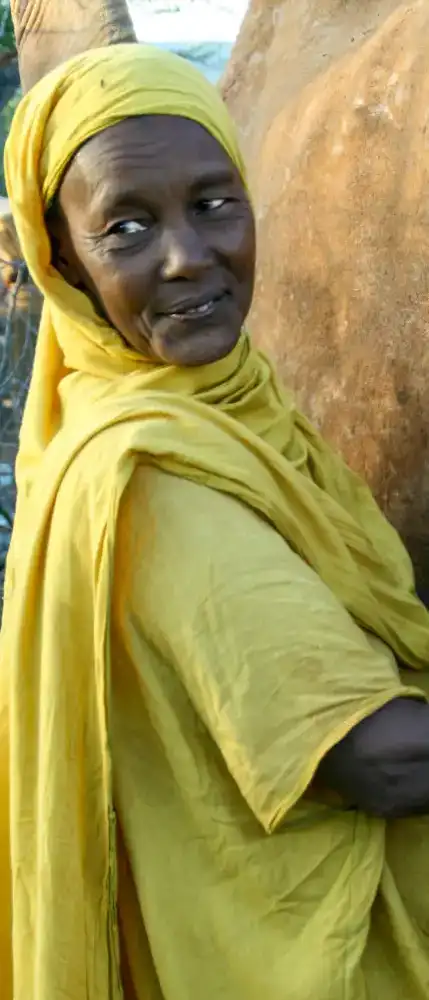
RSC Board of Trustees

Julian Bayliss
Dr. Julian Bayliss is a conservation scientist and ecologist with over 30 years of experience in environmental management. He specialises in protected area and natural resource management, and has led major biodiversity projects across Africa. His work spans ecosystem modelling, species protection, and environmental risk assessments, with over 40 peer-reviewed publications. Dr. Bayliss is a Fellow of the Linnean Society (FLS), the Royal Entomological Society (FRES) and the Royal Geographical Society (FRGS), and is a Visiting Professor at Oxford Brookes University.
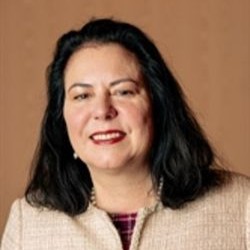
Jaine Chisholm Caunt
Jaine Chisholm Caunt OBE has been Director General of Gafta since 2014 and currently chairs the Federation of Commodity Associations. She previously chaired the International Agri-food Network (IAFN) from 2015 to 2017 and served as Secretary General of the Tobacco Manufacturers Association (2011–2014). Earlier, she was Director of Stakeholder Relations and Policy for Cogent, the UK’s science and process manufacturing skills body (2006–2011). Jaine has held several governance roles, including with OPITO, HEFCE, and multiple charity boards, and she is currently a board member of European agri-commodity associations COCERAL and CELCAA, the International Grain Trade Coalition (IGTC), the World Agriculture Forum, and the Rangeland Stewardship Council, as well as a committee member of Legal UK.
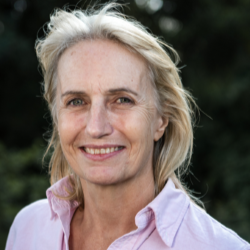
Fiona Flintan
Fiona Flintan is a Senior Scientist at the International Livestock Research Institute (ILRI), currently based at the Alliance of Bioversity and CIAT in Rome. With over 15 years in East Africa, including a decade supporting land rights for pastoralists in Tanzania, she specializes in rangelands, pastoralism, and climate resilience. Fiona leads the CGIAR Initiative on Livestock and Climate and the GEF-funded STELARR project, focused on restoring rangelands through sustainable value chains. A global advocate, she contributes to the UN Decade on Ecosystem Restoration, the IYRP, the Global Rangelands Atlas, and serves on the Council of the International Land Coalition.
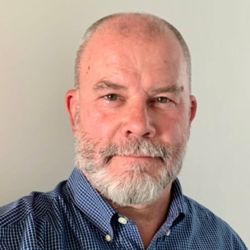
Paul Litttlefair
Paul Littlefair is Head of RSPCA International, leading efforts since 2012 to advance animal welfare through legislation, education, and industry standards. He has supported CSR initiatives with multinational companies and, since 2015, has worked with the SFA on developing animal welfare codes of practice in Mongolia and China. Before joining the RSPCA in 1998, he studied Chinese and worked in both China and Japan. Paul is an Honorary Fellow of the Chartered College of Teaching and a Fellow of the Royal Society of Biology.
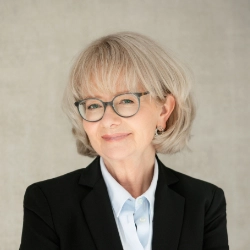
Christine Carey
Christine Carey is an experienced Non-Executive Director and strategic leader with over 20 years’ experience in governance, sustainability and risk oversight across international non-profit and public sector organisations. She chairs the Integrity Council for Science Based Targets for Nature (SBTN) and contributes her expertise to the Aluminium Stewardship Initiative and AccountAbility through roles on nature-related and stakeholder engagement working groups. She also serves on a Fairtrade International steering committee, advising on human rights and environmental due diligence.

Jerry Wheeler
Jerry Wheeler is a transformational executive and sustainability-focused entrepreneur who helps organisations turn sustainability goals into measurable business value. He has built purpose-driven ventures throughout his career, guiding companies through strategic growth, innovation and operational change. As founder of EcoCentric, he developed the F.A.S.T. Methodology, a systems-thinking approach that aligns business values with sustainability initiatives to enhance products, transparency and stakeholder engagement. He also co-founded Kastlfel, a vertically integrated sustainable apparel brand incubated through the F.A.S.T. Methodology and scaled from launch to $8M in revenue.
Steering Committee

Mr Ayongxi
Mr Ayongxi currently serves as the Vice President of the International Cooperation Committee for Animal Welfare (ICCAW) within the China Agricultural International Cooperation Promotion Association and represents China as the liaison for the International Organisation for Standardisation (ISO) Animal Welfare Working Group. He has engaged in the development of ISO's guidelines for animal welfare and participated in the final review of these guidelines held in Paris. Mr Ayongxi has also been involved in the formulation of the first series of industry standards for animal welfare in China, covering welfare requirements for pigs, beef cattle, sheep, broiler chickens, and laying hens. Chairing the development of the Group Standard for "Animal Welfare Requirements for Cashmere Goats", Mr Ayongxi additionally serves as the Deputy Chief Coordinator for animal welfare and antimicrobial resistance projects in the China-EU Horizon Project.

Louise Baker
Louise Baker is the Managing Director of the Global Mechanism of the United Nations Convention to Combat Desertification (UNCCD), a role she assumed in August 2020. She joined the UNCCD secretariat in 2011 and served as Chief of the External Relations, Policy and Advocacy unit from 2014, overseeing policy development, communications, and partnerships. Originally from a rural farming community in the United Kingdom, Louise has also led public health campaigns on immunization, tuberculosis, and tobacco control for the World Health Organization. She has extensive experience living and working in Central and Eastern Europe and Asia.

Marco Coetzee
Marco is the General Manager at Mohair South Africa.
Full biography coming soon.

Peter Hughes
Peter Hughes is the Global Sustainable Business Development Manager at Eurofins, with over 15 years of experience in sustainable development across various sectors. He has led sustainability initiatives in food, government, and housing, focusing on ethical standards and systems thinking. At Eurofins|BLC, Peter drives supply chain mapping, traceability, and compliance with global and UK standards in the apparel sector. He previously led the Animal Welfare subgroup of the Leather Working Group, growing membership to over 25 brands by 2022.

Juan Pepper
Juan Pepper is a member of the board of directors of La Joya Mining SAC, past President of the International Alpaca Association AIA, member of the board of the Alpaca Civil Association of Peru ASCALPE, and Commercial Director of Michell & Cia SA, the main alpaca textile conglomerate worldwide.
Specialized in international business and developing new markets in Asia, North America, Europe and the Middle East, and more than 30 years management Experience of high-performance teams for these markets.
Juan holds an MBA in International Business from the University of Philadelphia in the United States and is a graduate in Business Administration from Santa Maria Catholic University, Arequipa – Peru.
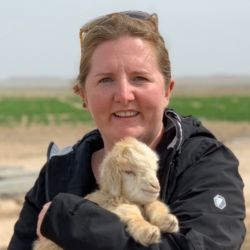
Karen Perry
Karen Perry serves as the Sustainability Manager for Raw Materials at John Lewis & Partners, where she leads initiatives to enhance sustainable sourcing practices and reduce environmental impact. With extensive experience in sustainable supply chains, she focuses on implementing ethical standards, fostering supplier partnerships, and integrating circular economy principles. Karen has also been involved in developing the Responsible Mohair Standard with Mohair South Africa and Textile Exchange, ensuring sustainable and ethical mohair production. Additionally, she is a trustee of the Sustainable Fibre Alliance
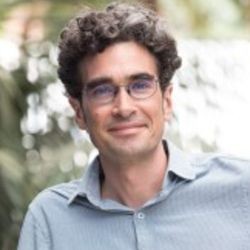
Alejandro Pertusa
Alejandro Pertusa is the Ecosystems & Biodiversity Lead at Inditex, where he drives the company’s strategy of natural ecosystems stewardship through value chain mitigation, regenerative practices, and other actions towards their protection and restoration. With over 15 years of experience in sustainability, he has played key roles connected to advancing human rights and environmental performance across global supply chains, particularly during his tenure at Tempe Grupo Inditex, also contributing to the development of the "Join Life" standard for lower-impact products. His background includes collaborations with various sustainability initiatives in Spain, focused on ecointelligence, Cradle to Cradle certification, and stakeholder engagement.

Sarah Toumi
Sarah Toumi is a Tunisian-French environmental innovator and the Donor and Private Sector Engagement Lead at the United Nations Convention to Combat Desertification (UNCCD), where she builds strategic alliances to restore 1.5 billion hectares of degraded land and enhance drought resilience. With a background in French Literature from Université Paris-Sorbonne, Toumi founded DREAMin, a student incubator for social and environmental projects, and later launched “Acacias for All” in Tunisia to combat desertification and rural poverty through sustainable farming. A recognized Ashoka and Echoing Green Climate Fellow, she previously served as Programme Management Officer for the Great Green Wall Accelerator at UNCCD, where she focused on resource mobilization and stakeholder engagement across Africa.

Azjargal Ulziitogtokh
Azaa is a development and impact financing professional with 20 years of banking and project finance experience in diverse sectors such as mining, agribusiness, energy, renewables, infrastructure and financial sectors in Europe, CIS, Africa and Asia. Azjargal is currently advising corporates internationally on adapting sustainability, green and ESG strategies. She recently worked on the establishment of US$198mln biodiversity fund, anchor invested by the Nature Conservancy and the Mongolian Government. Previously she held leadership positions with the European Bank for Reconstruction and Development (EBRD), an international development bank, and led financial transactions and projects with positive impact on environment, society and corporate governance in the bank’s 33 countries of operations. She is an avid supporter of projects and initiatives that drive climate mitigation, biodiversity safeguarding and social justices.
Executive Team

Julian Bayliss
Dr. Julian Bayliss is a conservation scientist and ecologist with over 30 years of experience in environmental management. He specialises in protected area and natural resource management, and has led major biodiversity projects across Africa. His work spans ecosystem modelling, species protection, and environmental risk assessments, with over 40 peer-reviewed publications. Dr. Bayliss is a Fellow of the Linnean Society (FLS), the Royal Entomological Society (FRES) and the Royal Geographical Society (FRGS), and is a Visiting Professor at Oxford Brookes University.
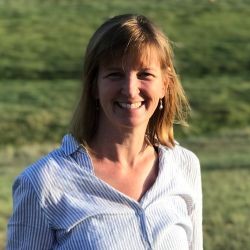
Anne Gillespie
Anne Gillespie is the Strategic Lead of the Rangeland Stewardship Council (RSC), guiding the organisation in advancing sustainable rangeland management through inclusive governance and collaborative approaches. A globally recognised expert in sustainable textiles and ethical supply chains, she previously served as Director of Impact Acceleration at Textile Exchange. During her 20 years with the organisation, she led the development of industry-defining standards, including the Organic Content Standard, Global Recycled Standard, Responsible Wool Standard, and Responsible Down Standard, as well as initiatives like the Leather Impact Accelerator and credit trading systems. With earlier experience as a product manager at Mountain Equipment Co-op—where she transitioned the cotton program to organic—and as co-founder of Continuum Textiles, Anne has long been at the forefront of sustainable innovation.

Una Jones
Una Jones is the CEO of the Sustainable Fibre Alliance (SFA), where she leads efforts to promote environmental sustainability in natural fibre production. Drawing on her expertise in sustainable supply chains, she works to strengthen traceability, transparency, and responsible practices within the fashion and textile industries. As a founding member of the Rangeland Stewardship Council (RSC), Una drives initiatives focused on biodiversity conservation, climate resilience, and community well-being through ecological preservation and responsible land management.

Zara Morris-Trainor
Dr Zara Morris-Trainor joined the SFA in 2019 after completing a PhD on the social and ecological impacts of cashmere production in Mongolia. She led the development of the SFA’s 2030 Strategy, became Operations Manager in 2020, and was appointed Head of Research & Policy in 2022. With experience across NGOs and multi-stakeholder initiatives in New Zealand, Malawi, Borneo, and the UK, she works to bridge gaps between academia, practitioners, and the private sector to address global sustainability challenges.
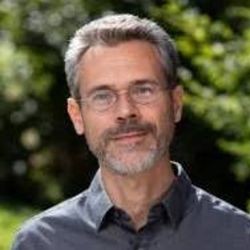
Damien Sanfilippo
Damien Sanfilippo is a sustainability expert with over 20 years of experience advancing responsible agriculture and supply chain standards. As Senior Director at Better Cotton, he led programmes across 17 countries, supporting 3 million farmers and managing a €13 million foundation for farmer-focused grants. He has also held key roles at Fairtrade International, PAN UK, and Bonsucro, and served on the International Cotton Advisory Committee’s expert panel. Damien brings deep expertise in ESG, rural development, and impact-driven partnerships that strengthen livelihoods and environmental outcomes.

Vivian Tang
Vivian Tang has extensive experience in marketing and business development, with a strong foundation in strategic consulting. She has successfully led projects that secured backing from government bodies and venture capital firms, focusing on business model innovation, strategic planning, and the development of CRM and pricing frameworks. Her previous roles include directing market research and growth initiatives for an international healthcare organisation. Vivian holds a BA from McGill University and an MBA from London Business School.

Tara Zieleman
Tara Zieleman has more than 15 years of experience in senior fundraising leadership, donor relations, and international consulting. Having lived and worked in multiple countries, she brings a global perspective and a natural talent for building meaningful, trust-based relationships with donors, corporations, and foundations across cultures. Throughout her career, Tara has led successful fundraising campaigns and events, secured significant grants, and forged cross-sector partnerships that enhance organisational visibility and create sustained revenue growth. With strengths in strategic communications, stakeholder engagement, and financial stewardship, Tara is dedicated to helping mission-driven organisations expand their reach and maximise their impact around the world.
Get In Touch.
We look forward to engaging with like-minded individuals who share
our commitment to creating a better, more sustainable future.

